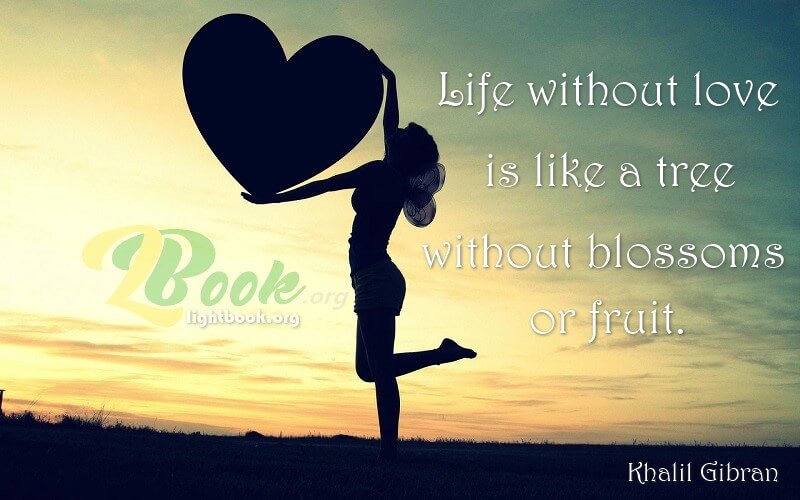If there is a Sacrifice, is it for Love or out of Duty?
If there is a Sacrifice, is it for Love or out of Duty?
In the Depth of Sacrifice Lies Pain
Sacrifice, a profound and intricate facet of human nature, often poses a complex question: “If there is a Sacrifice?” This inquiry delves into the depths of our motivations, unraveling the intricate threads that connect love and duty to the choices we make.
Throughout history and literature, this question has been contemplated, dissected, and analyzed, revealing the multifaceted nature of sacrifice and the motivations that drive it.
Understanding the Dichotomy: Love and Duty
Sacrifice, whether grand or seemingly trivial, frequently stems from either love or duty. Love, a potent and intense emotion, has the power to propel individuals to make profound sacrifices willingly.
It might be the love a parent feels for their child, prompting them to sacrifice personal desires for the well-being of their offspring. Alternatively, romantic love might drive someone to make sacrifices to ensure the happiness and comfort of their partner.
On the other hand, duty, often rooted in societal norms, obligations, and responsibilities, can lead individuals to make sacrifices regardless of their personal inclinations. This dichotomy sets the stage for a nuanced exploration of the motives behind sacrifice.
There was an announcement of a wonderful evening for a famous singer. Nabila’s parents spent hours preparing for this evening. As they were happily preparing to leave the house, the mother noticed that Nabila had a sudden fever. She said to her husband: “You go and entertain yourself, but I will stay with Nabila.”
Her husband replied: “Why do you always have to sacrifice? You go to the evening, because you deserve it, after a day of hard work.” The wife said: “No, my love. No sense of sacrifice because I love her.” The wife said, “There is no sacrifice, because there is love.”

As if she wanted to say: If there is love, there is no sacrifice. If there is sacrifice, then it means the absence of love. It can also be said that there is a sacrifice due to the absence of love.
In love, there is a free abandonment of joy, while sacrifice is forced and tortured abandonment out of duty. Joy, love, and freedom will not subside, and sacrifice will not be a gift to the other, because in the depth of sacrifice lies pain, oppression, and self-denial. “Love is as strong as death.
Many waters cannot quench love, neither can the floods drown it. If a person gives all the wealth of his house instead of love, it will be contemptuous” (Song 8: 6, 7).
Love as the Catalyst for Sacrifice
Love, a force that transcends boundaries, has the capacity to inspire remarkable acts of sacrifice. Consider the tale of a medical professional working tirelessly in a war-torn region, risking their safety and comfort to provide medical aid to those in need. This sacrifice emerges from a profound love for humanity and a desire to alleviate suffering.
Similarly, a friend who puts their dreams on hold to support a struggling companion showcases the sacrificial nature of friendship, underpinned by genuine care and affection. These examples underscore the notion that some sacrifices are driven by an unwavering love for others.
The Intricacies of Sacrificial Love
Sacrificial love presents itself in various forms, each with its own intricacies. The sacrificial love of a mentor guiding their protégé towards success demonstrates a profound commitment to the growth and well-being of another individual. In literature, iconic characters like Sydney Carton from Charles Dickens’.
A Tale of Two Cities epitomizes sacrificial love, where Carton’s ultimate sacrifice is driven by his profound affection for another. These instances raise the question: Can love truly flourish without an element of sacrifice? The intertwining of these concepts is evident as sacrificial love often forms the bedrock of some of the most profound human connections.
Duty’s Call: Sacrifices Made Out of Obligation
Duty, a concept ingrained within societal structures, can also be a driving force behind sacrifices. Consider a soldier leaving their family to serve their country in a distant land. The sacrifice made here is not solely for personal affection but is grounded in the duty to protect and defend.
Similarly, the sacrifices parents make to provide for their children’s needs are often fueled by the duty to nurture and care for their offspring. These sacrifices may not always be accompanied by an overwhelming surge of emotional love but are compelled by a sense of duty and responsibility.
The Intersection: Navigating Sacrifice with Love and Duty
The intricate interplay between love and duty often blurs the lines, leading to scenarios where both motivations coexist. Imagine a caregiver tending to an elderly relative. While duty may play a role due to familial obligations, genuine love and compassion also drive the caregiver’s actions.
In such cases, the question arises: Is it possible to isolate one motivation from the other? Perhaps the answer lies in acknowledging that these motivations can harmoniously coexist, reinforcing the complexity of human nature.
Cultural and Contextual Influences
Cultural and contextual factors significantly shape the motives behind sacrifices. In some cultures, the concept of duty to family, community, or tradition takes precedence, underscoring the importance of fulfilling obligations even in the absence of personal emotional attachment.
In contrast, individualistic societies might emphasize personal choice and emotional fulfillment, making sacrifices driven by love more prominent. The diverse tapestry of human cultures thus adds layers of complexity to the overarching question.
Personal Journeys: A Spectrum of Sacrifices
Sacrifices are not confined to grand gestures; they span a broad spectrum, from minor daily choices to life-altering decisions. A student pulling an all-nighter to excel in exams, a professional relocating for a career opportunity, or a volunteer dedicating time to a charitable cause—all these actions involve sacrifices made for various reasons.
Some might stem from a deep love for personal aspirations, while others align with a sense of duty towards self-improvement or societal contribution.
Reshaping Perspectives: The Evolution of Sacrifice
As societal norms and values evolve, so do the perspectives on sacrifice. The 21st century witnesses a shift towards individualism, where personal aspirations and desires often take precedence. This shift, however, does not negate the existence of sacrifices made for love or duty. Instead, it prompts a reconsideration of the dynamics between these motivations and how they intertwine in a modern context.
Conclusion
In the grand tapestry of human existence, sacrifice emerges as a complex and multi-dimensional phenomenon. The question, “If there is a Sacrifice, is it for Love or out of Duty?” elicits contemplation about the intricate motivations that drive us to relinquish something for the greater good.
Love and duty, often seen as distinct entities, weave together to create the rich fabric of sacrifice. Whether motivated by profound affection or societal obligations, sacrifice showcases the depth of human connection and the myriad ways in which we navigate the intricate dance between love and duty. So, the next time you encounter a sacrifice, pause and ponder: Is it driven by love, duty, or perhaps an intricate blend of both?
If there is a Sacrifice, is it for Love or out of Duty? This question will continue to resonate through time, inviting introspection into the motivations that underpin our most selfless actions.
Sayings about Sacrifice
- How noble is the sad heart whose grief does not prevent him from singing a song with joyful hearts? – Khalil Gibran
- Sacrificing pleasure to avoid pain is a clear gain. – Arthur Schopenhauer
- Many people have the wrong idea of happiness. Fulfilling desires will not achieve it, but by sacrificing for a noble goal. – Helen Keller
- A man hesitates to sacrifice his freedom on the altar of love, but a woman never hesitates. – Anatole France
- The best people have a sense of beauty, the courage to take risks, the discipline to speak the truth, and the capacity for sacrifice. Paradoxically, it is these same virtues that make them vulnerable to attack: they are often wounded, sometimes destroyed. – Ernest Hemingway
- Compromising is sacrificing one right in the hope of keeping another – oftentimes ending up losing both. – Tryon Edward
- Self-sacrifice removes the embarrassment of sacrificing others. – George Bernard Shaw
- Sincerity is worthless unless there is self-sacrifice at its core. – Woodrow Wilson
- A man hesitates to sacrifice his freedom on the altar of love, but a woman never hesitates. – Anatole France
Related Quotes
- Face Life’s Problems Like a Handful of Dust (Real Story)
- Top 112 Church Fathers Quotes about Love, Life, and Faith
- 25 Saint Quotes Have Deeply Spiritual Meanings
Jesus Loves Me This I Know For The Bible Tells Me So
- 25 Inspirational Love Quotes to Warm Your Soulful Heart
- Top 20 St. Francis of Assisi Quotes about Challenge the Way








